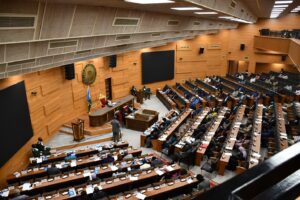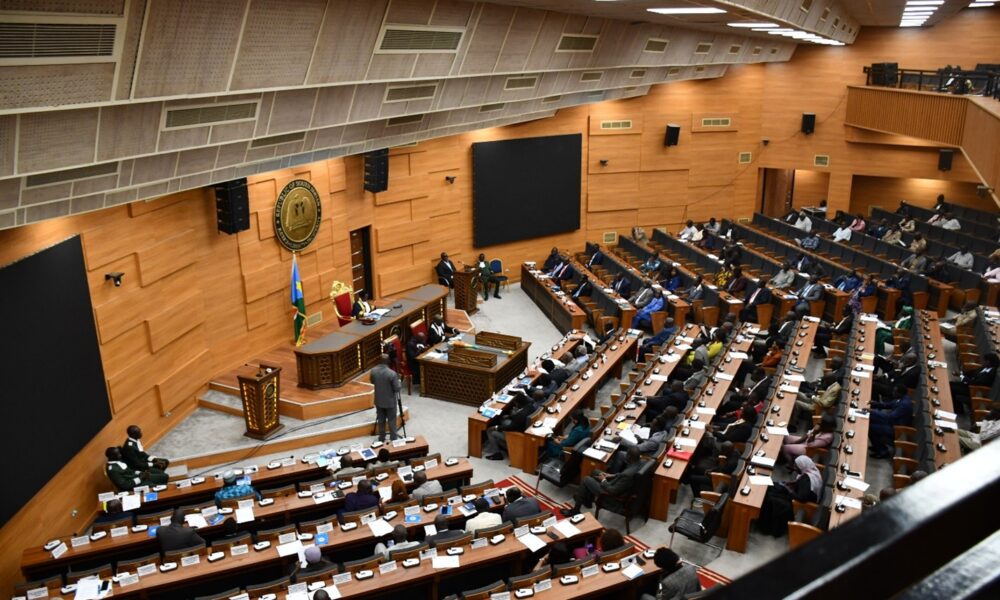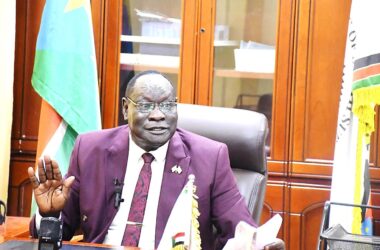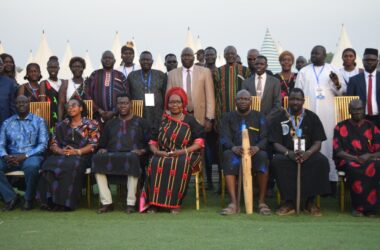
By Alan Clement
The Transitional National Legislative Assembly (TNLA) has resolved to summon four ministers over pressing concerns in the country.
Among the issues presented are scholarship allocations, Labor rights violations, and fiscal transparency, as well as the ongoing economic crisis.
During the fourth ordinary sitting held on Wednesday, August 6th, 2025, lawmakers raised concerns prompting Speaker Jemma Nunu Kumba to confirm that ministers from the Ministries of Higher Education, Labour, Gender, and Finance will be summoned to appear before the August House to provide clarifications on issues raised.
Speaking during the session, MP Stephen Bol of Mayom County, Unity State, raised a point of information on alleged irregularities in the awarding of scholarships to India, specifically citing gender exclusion and lack of regional diversity.
“There was a certain list which was shortlisted for the scholarship to India. If you look carefully at that list, diversity was not considered and female representation is not there,” Bol told the Assembly, urging the Minister of Higher Education be summoned to explain the selection process.
Speaker Kumba acknowledged that the matter had generated numerous public complaints and confirmed that she had already met with the Minister of Higher Education, the Chairperson of the Higher Education Committee, and student representatives on August 5th.
She quoted the Minister’s media remarks stating, “Anybody below 88 was not selected,” and acknowledged the Minister admitted the process was rushed adding, “The Minister promised to put measures in place to ensure future scholarships are more inclusive and cover all ten states and the three administrative areas.”
SPLM-IO Chief Whip Hon. Farouk Gatkuoth challenged the sufficiency of apologies, stating, “We cannot allow Ministers to commit such petty mistakes and leave just like that simply because of their apologies.” He pressed for a formal summons, which the Speaker confirmed, alongside a request for students to present their results to Parliament upon return.
Additionally, parliament is demanding answers from the Ministry of Finance and Planning over the delayed 2025/2026 national budget.
MP Sunday Phillip Kot of Yirol East County raised transparency concerns, noting. “After the opening of Parliament, “we were expecting that the first priority for us would be the tabling of the 2025/2026 budget,” Kot noted adding that, “There has been no clarification from the Minister regarding its status.”
Speaker Jemma Nunu Kumba confirmed the budget hasn’t reached Parliament and backed calls to summon the Minister.
Lawmakers are expected to continue deliberations after hearing directly from summoned officials, signaling increased scrutiny on governance, education, and labor reforms.
The sitting also deliberated on a motion addressing growing public grievances over labor rights violations, including reports of illegal employment of foreigners, wage discrimination, child labour, and weak enforcement of work permits issues which MPs say are undermining the Labour Act, 2017.
The motion introduced under Regulation 52(1) of the TNLA Conduct of Business Regulations originally requested five ministers be summoned: Labour, Gender, Humanitarian Affairs, Justice, and Trade.
The motion also proposed the creation of a Labour Court and increased support for small businesses to empower South Sudanese workers, with Speaker Kumba declaring that the issue had become urgent due to the sheer volume of public complaints. “It’s high time that we discuss this to try to find a solution to protect our people,” she said.
However, Minister of Labour James Hoth Mai narrowed the scope, explaining, “The issues raised in the motion fall squarely within the mandates of the Labour and Gender ministries.” He argued the remaining ministries primarily handle licensing, not employment.
The Speaker upheld her recommendation and ruled that the ministers Labour, Gender, Higher Education, and Finance will face Assembly summons over their respective portfolios, with additional ministers to be invited if needed.
As the Assembly moves forward, lawmakers are expected to deliberate further on these matters after hearing directly from the summoned ministers.
The wave of summons signals growing parliamentary scrutiny and a push for reform in key areas affecting education, labor, and economic governance.



